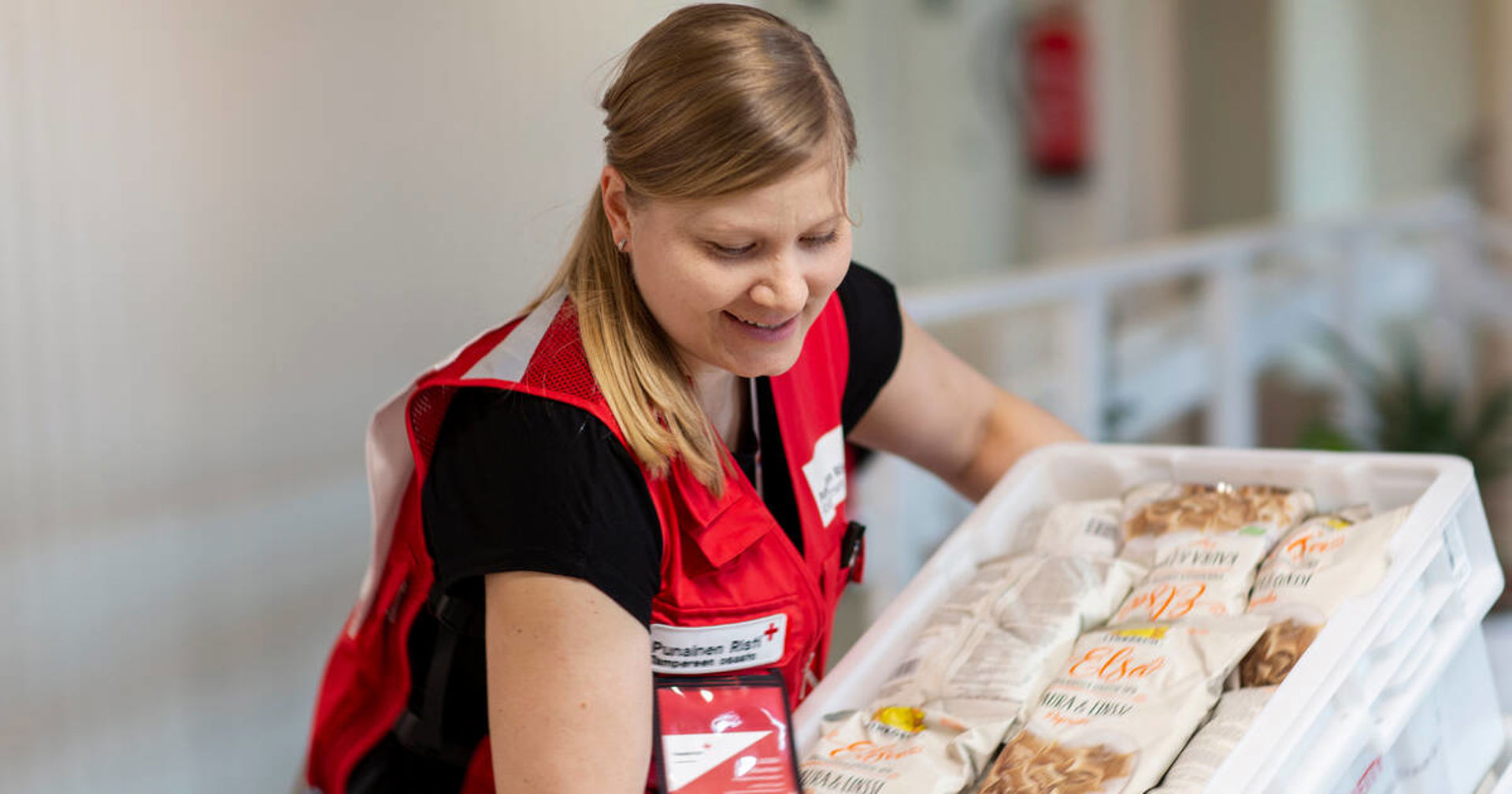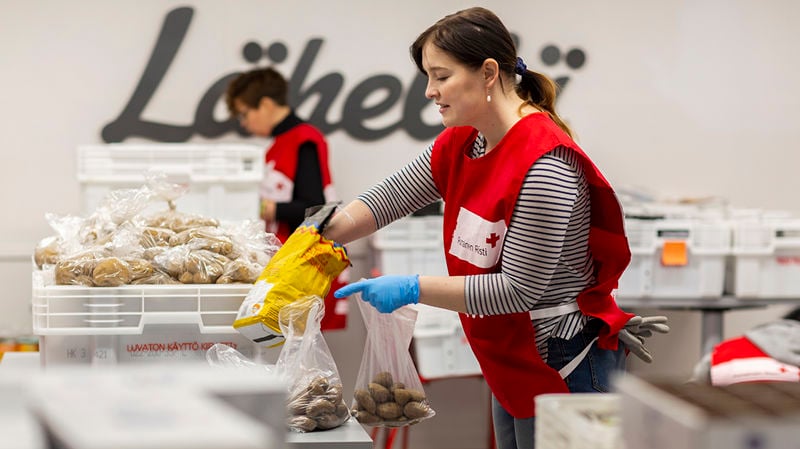Finnish Red Cross launches study with Tampere University on quality of life among food aid recipients

The study examines the quality of life, social inclusion and everyday coping of food aid recipients.
The Finnish Red Cross, in collaboration with Tampere University, has launched a study examining the quality of life, social inclusion and everyday coping of food aid recipients.
The data collection is coordinated by the Finnish Red Cross's food aid coordination project (STEA), and Tampere University is responsible for the study.
Data will be collected between 1 October and 31 December 2025 at food aid events organised by the Finnish Red Cross and other participating organisations throughout Finland by means of paper and electronic questionnaires.
The study examines, among other things, the reasons for and duration of receiving food aid, as well as the use of other services and social benefits. The study also explores the factors that support and strengthen the resources of food aid recipients in their everyday lives.
‘Food aid events are socially very important for people. They provide peer support, assistance and companionship from people who have time to listen. In our individualistic society, it is becoming increasingly important to feel seen, especially for those with weak support networks,’ says Finnish Red Cross coordinator Niklas Vaalgamaa.
The aim of the study is to reach a wide range of food aid recipients, including different forms of food aid, such as food distribution and communal meals. In addition to Finnish, the survey is available in English, Swedish, Ukrainian and Russian.
‘This allows us to also reach members of linguistic minorities, as food aid recipients increasingly include people such as international students and refugees from Ukraine,’ says Vaalgamaa.
In addition to the Finnish Red Cross, data is collected by the Finnish Homeland Aid Work Alliance, the Finnish Blue Ribbon, Stadin safka, the Finnish National Organisation of the Unemployed, ViaDia, and Vantaa’s Yhteinen pöytä at their own events. The Finnish Red Cross is collecting data in the districts of Helsinki and Uusimaa, Häme, Southeast Finland, Oulu, Southwest Finland and Åboland.
The food aid study is part of a broader research project led by Juho Saari and entitled Vaurauden varjossa – huono-osaisten sosiaalinen asema 2020-luvun Suomessa. It studies the social status of disadvantaged people in Finland in the 2020s and involves 17 researchers from various universities. The aim is to examine the living conditions of people in vulnerable life situations by means of various survey data. In addition to food aid, data is collected from the activities of diaconal work and the Deaconess Foundation, as well as from targeted communal meals in Kotka and Pori. In addition to this, Yle (in Finnish) is conducting a survey to collect data on how people are coping in their everyday lives.
The results of the Vaurauden varjossa research project will be published in autumn 2026. The aim is to provide up-to-date information on food aid and disadvantage in general in Finland ahead of the upcoming parliamentary elections. There is a particular need for this study now that major cuts have been made to social security. The impact of the cuts was already evident in an earlier survey conducted by the Finnish Red Cross in 2024, in which 59% of respondents said that the cuts in social security had increased their visits to food aid events.
‘Now that social security has been cut further, it is important to obtain up-to-date information on how this is affecting people's lives,’ says Vaalgamaa.

Food aid in Finland
